DIRECTED BY: Josef von Sternberg
STARRING: Emil Jannings, Evelyn Brent, William Powell
WON: Best Actor in a Leading Role (Emil Jannings)
NOMINATED FOR: Best Writing, Original Story (Lajos Biró)
It seems very fitting that the first film to win Best Actor would be a film entirely about acting, and very ironic that the man who won the award, Emil Jannings, won the award for playing the only man in the film who isn't acting.
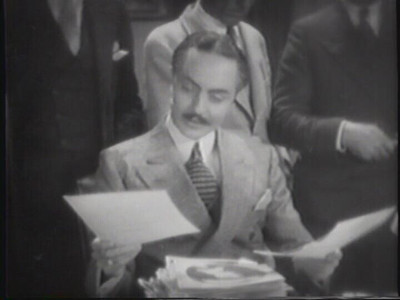
The film opens in 1920s Hollywood, "The Magic Empire of the Twentieth Century" as the titles tell us. Director Leo Andreyev (played by William Powell) scans through a pile of headshots of Russian actors, looking for just the right extra for his film. He stumbles on this one.
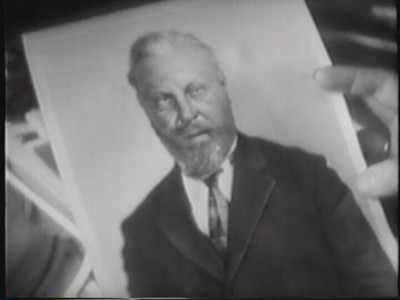
It's not a very flattering photo, and the description on the back says the man has very little acting experience (which turns out to be true more ways then one). However, the director MUST have him for some mysterious reason, so they call him at his apartment.
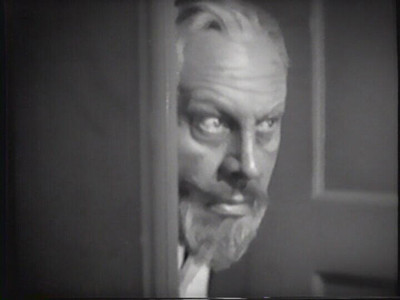
Here we offically meet Sergius Alexander, an old broken Russian man living alone. A nasty twitch keeps his head shaking, as if to say "NO" to everything he encounters.
It's a really convincing twitch too, I thought for a moment that they actually got a damaged man to play the part. Instead, they got Emil Jannings, our Best Actor winner. A Swiss actor born in 1884, Jannings became a powerful silent star throughout the 1920s, particularly in the works of F. W. Murnau. His 1928 acting nomination was for two films (something the Academy only did that year), the other being the sadly lost The Way of the Flesh.
1928 was a great year for Emil Jannings. 1929, not so much, but we'll get to that later.
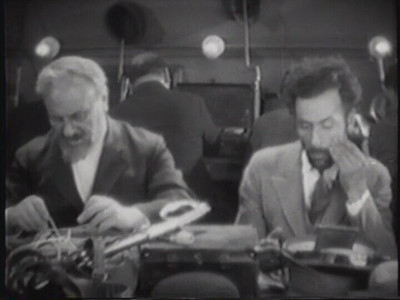
So Alexander is summoned to the film studios, where he's assigned the role of general. His fellow extras waltz around and pose and curse and fight with each other, but Alexander simply sits quietly as his pulls out a medal that's not part of the costume. One of the extras asks him about it, and Alexander tells him that he used to BE a general in the Russian army. The extras laugh at the old man's claims, play a bit of keep-away with the medal and then leaves him alone, giving him some time to reflect on who he is and who he was.
The flashback is brought by mirror.
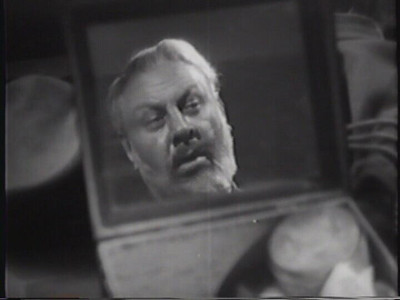
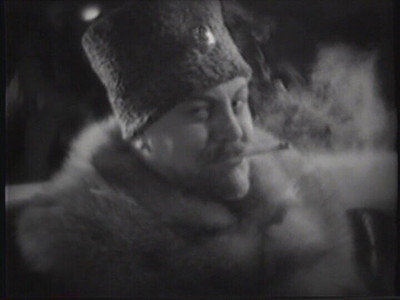
The Alexander of "now" is a much different man then the Gen. Alexander of the Russian Revolution. Ten years younger, with a load of confidence and an Orson Welles smirk, and no twitch in sight. Alexander, cousin of the Czar, is the leading general of the Russian army, who is currently in the middle of battle with the Bolsheviks.
The film is directed by Josef von Sternberg, which came as a surprise when I learned it. The film looks nothing like Sternberg's later works (and not just because Marlene Dietrich isn't in it). It's clear that Sternberg hadn't developed his strong sense of mise-en-scene yet. Take a look at the Russian settings in The Last Command.
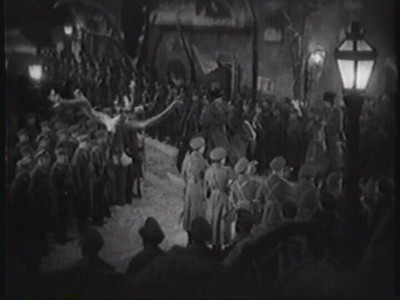
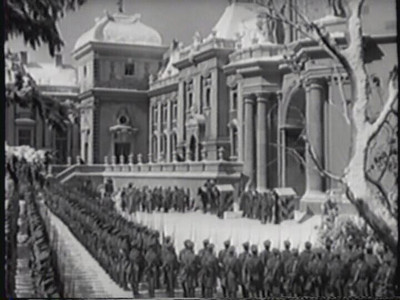
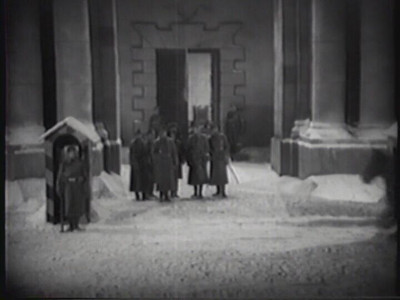
Fairly standard stuff. Now, compare these to the Russian settings in Sternberg's The Scarlet Empress, which he made only six years later.
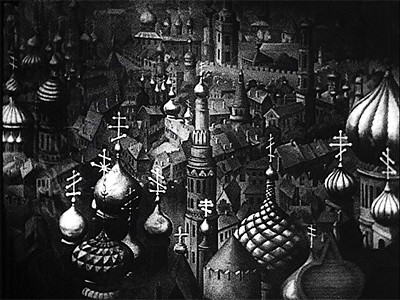
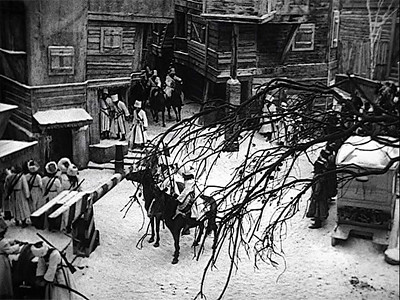
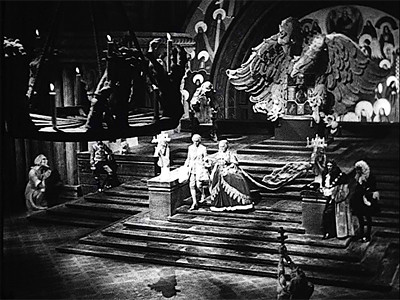
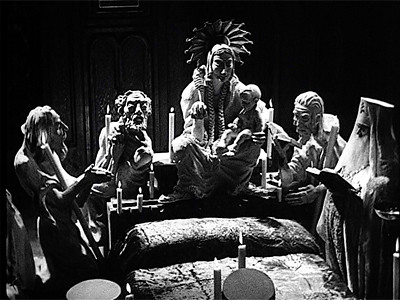
Night and day, practically! Granted, The Scarlet Empress takes place in the 1700s while The Last Command takes place in the 1910s, but I doubt 18th century Russia were THAT fond of creepy statues.
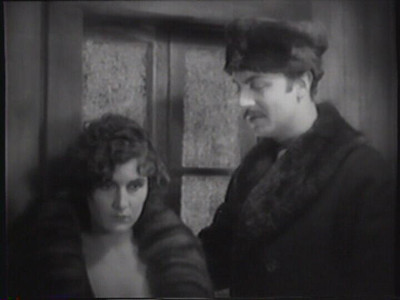
Back in the flashback, Gen. Alexander is looking over the troops while two mysterious persons plot in an empty room... Hey, wait a minute? Isn't that Andreyev, the director? Well, it seems back then that he was actually a Bolshevik spy. His companion is fellow spy Natalie Dabrova, played by Evelyn Brent. They need to get close to Gen. Alexander, but how?
But before they can finish plotting, they're captured and taken to prison. After his examinations, Gen. Alexander returns to his office and starts looking through the passports of captured spies.
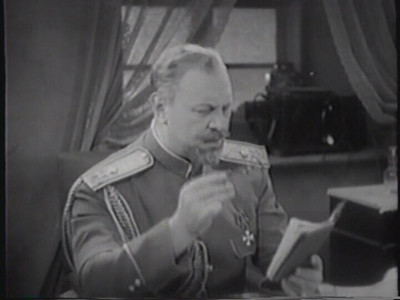

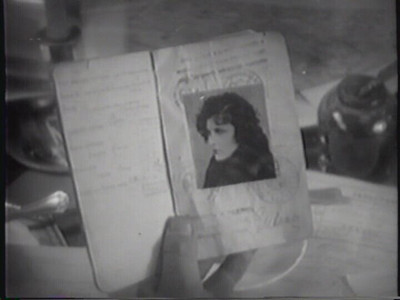

We're starting to get into the meat of this film. A lot of comparisons are made between 1910s Russia and 1920s Hollywood, not the least being the class system of both. The leaders/directors are pampered, while the citizens/extras wait silently in the background for their own chance.
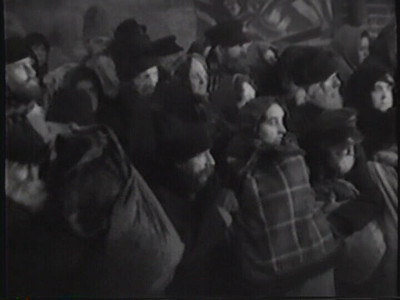
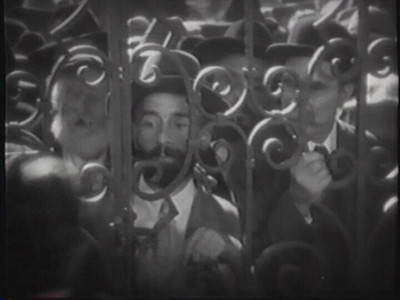
It turns out that Andreyev and Dabrova are pretending to be theater actors. Gen. Alexander, though knowing she's a spy, is very taken by Dabrova. Pretending to be convinced that she actually is an actress, Gen. Alexander asks that she come with him to have dinner with a number of high-ranked officers, and she agrees. No way she can turn down a chance like this.
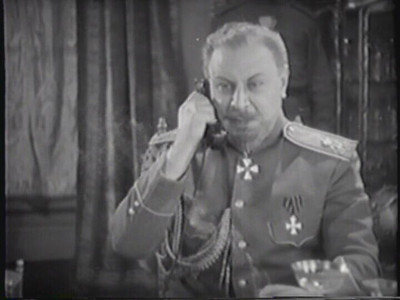
Dabrova hates Gen. Alexander not because of what she knows of HIM, but because he symbolizes Russia. However, during the party, she starts to get a sense of his true character. He's nice and funny and a bit clownish, but the real moment of his redemption is when officers call him during the party. They tell him that the Czar will be coming to the battlefield in a few days, and that Gen. Alexander should start a battle to impress him.
Gen. Alexander, however, has no interest in wasting lives just to put on a show, even if it means displeasing the Czar. It becomes clear that in this world of spies and diplomats, Gen. Alexander is the only truely honest person in the film. Every other character is acting. We even get a scene where Debrova, in a rare moment alone, rehearses murdering the general.
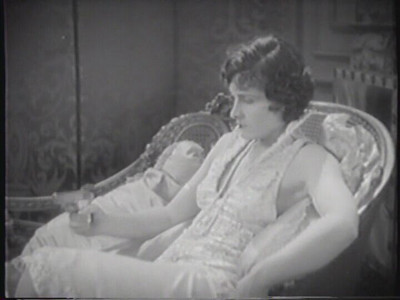
Eventually though, she falls for the man. Of course, almost all movie relationships have bad timing, because mere minutes after the two offically get together, the Russian base is attacked by the Bolsheviks. After a long brutal battle scene, the Bolsheviks finally get to Gen. Alexander...
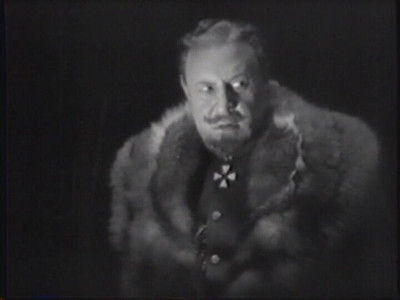
...and start beating the crap out of him...
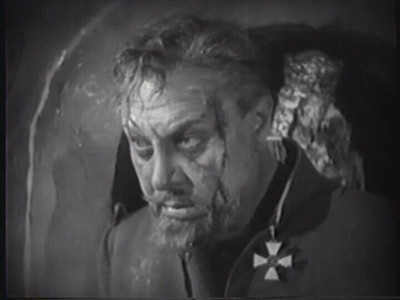
...but what really breaks him is when Debrova seems to betray him and gives the Bolsheviks the idea of having Gen. Alexander work for them as a servant, forcing him to shovel coal on a train.
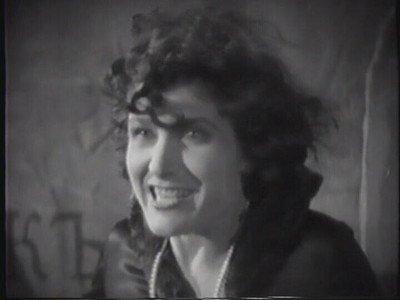
However, this proves to be another act, this time to save Gen. Alexander's life. After a long series of scenes of Alexander suffering one humiliation after another, Debrova finally gets a moment alone with him, and assists his escape.
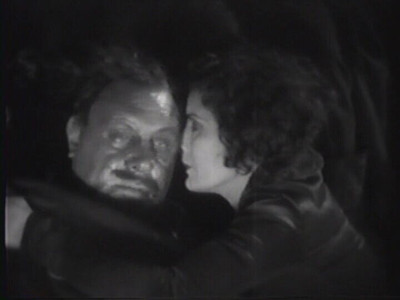
After knocking out a guard, Alexander jumps from the train and lands hard in the snow. AND THEN THE TRAIN CRASHES FOR NO REAL REASON.
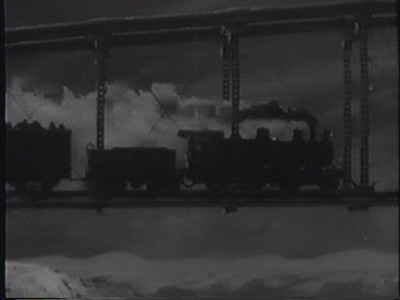
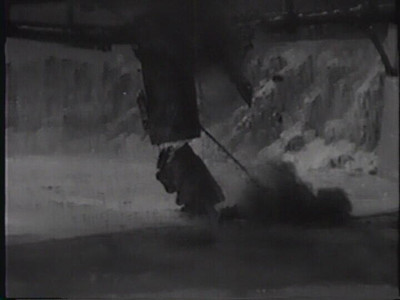
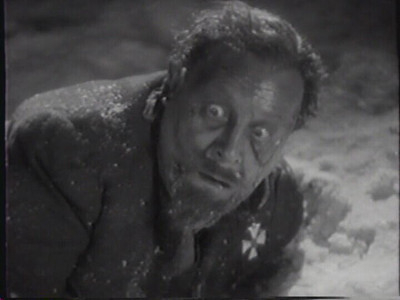
The train crash comes out of nowhere. There was no build up for it, it was just a random act of destruction, one last ultimate tragedy for Alexander as he watches his love sink into the icy river. I had to admit it, but I laughed.

And with that final chaotic moment, the flashback ends, and we return to the broken, twitchy Alexander we were introduced to. He and director Andreyev finally meet, and Alexander realizes what is going on. Andreyev recognized him from his headshot, and now Alexander is to suffer one more humiliation. Once again dressed as a Russian general, Andreyev directs Alexander to give one last desperate speech to the extras playing his soldiers. And Alexander delivers.
Emil Jannings became a star in the silent period, which more or less ended with 1928 and the release of The Jazz Singer (which we'll get to in due time). As sadly was the case with many actors and actresses at this time, Jannings's thick accent prevented him from continuing work in the USA. He moved to Germany to act in films and theater there, and during that time become a huge Nazi supporter, dismissing any fans he had left.
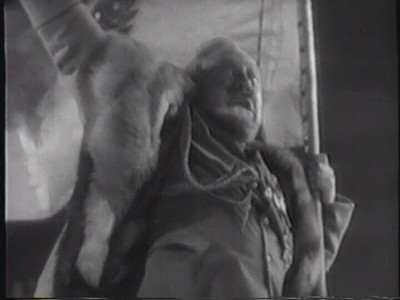
So in a haunting way, Alexander's last command is also Jannings'. And when Alexander dies of a heart attack mere moments later, Jannings' career goes with it.
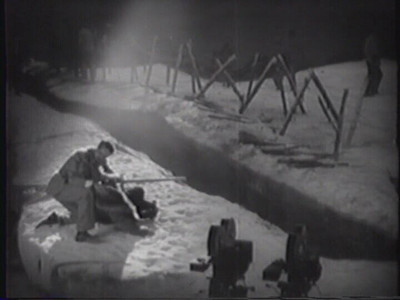
Let's see him act his way out of that.
No comments:
Post a Comment